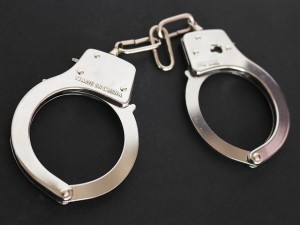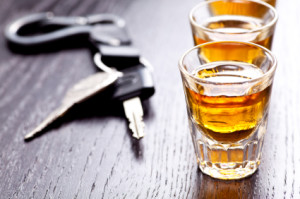 Montgomery County Police recently arrested a 31-year-old Hyattsville man after responding to a call for an armed robbery at a Safeway in Kensington. According to police the man and an 18-year-old co-defendant attempted to steal merchandise from the store but were confronted by a loss prevention officer or LPO. The LPO apparently tried to recover the merchandise from the thieves when the older male defendant pulled out a knife. During the scuffle the LPO was cut on his chest and transported to a nearby hospital. Most large retail stores have at least one loss prevention officer always working, and some stores like Target, Walmart, Home Depot and Lowes have numerous LPOs walking the retail floor and monitoring surveillance cameras in the security office. Loss prevention officers do not have the express power to arrest or detain individuals, but they can file charging documents on behalf of the store. Typically, LPOs call the police when they observe a suspected shoplifting case, and the officer who arrives on scene issues a criminal citation or files charges with a District Court Commissioner.
Montgomery County Police recently arrested a 31-year-old Hyattsville man after responding to a call for an armed robbery at a Safeway in Kensington. According to police the man and an 18-year-old co-defendant attempted to steal merchandise from the store but were confronted by a loss prevention officer or LPO. The LPO apparently tried to recover the merchandise from the thieves when the older male defendant pulled out a knife. During the scuffle the LPO was cut on his chest and transported to a nearby hospital. Most large retail stores have at least one loss prevention officer always working, and some stores like Target, Walmart, Home Depot and Lowes have numerous LPOs walking the retail floor and monitoring surveillance cameras in the security office. Loss prevention officers do not have the express power to arrest or detain individuals, but they can file charging documents on behalf of the store. Typically, LPOs call the police when they observe a suspected shoplifting case, and the officer who arrives on scene issues a criminal citation or files charges with a District Court Commissioner.
The LPO in this case was treated for non-life-threatening injuries, which likely means he did not receive a deep puncture wound that is common in stabbings. Police did not provide a detailed description of the injuries though based on the facts he may have been cut in a slicing type of motion and suffered a laceration. The defendant was charged with first degree assault, second degree assault, theft and false statement to a law enforcement officer. He was initially held without bail by the commissioner but released on an unsecured bail the next day at his district court bail review. The fact that a judge released the defendant tells us that he may not have intended to stab or even cut the victim. It also likely means that the defendant does not have a history of violent crime or other criminal offenses. This case is his only case in Maryland visible to the public, which leads to the conclusion that he has no prior convictions in the state. The defendant has a preliminary hearing scheduled for March 1 at the District Court in Rockville, though the State’s Attorney’s Office will make a decision about whether to file felony charges earlier than the preliminary. To prove assault in the first degree the State must prove the defendant intended to cause serious bodily injury, as the actual injures here were not life-threatening or permanent. Based on the defendant’s bail status the first-degree assault is likely a borderline proposition for the State, but we would not be surprised if they indicted him and then let it play out in circuit court.
The Blog will continue to follow this case and may post a follow up article in the future. If you or a loved one has been charged or is being investigated for an adult or juvenile crime in state or federal court, contact Maryland assault lawyer Benjamin Herbst anytime for a free consultation. Benjamin specializes in domestic violence cases such as assault by strangulation, false imprisonment and protective order violations. He is also a skilled gun crime lawyer who handles assault with a firearm, which is considered a felony regardless of whether the gun was fired or otherwise caused actual physical harm. Simply brandishing a gun in a threatening manner can result in felony assault under Maryland law. Finally, if you have been charged with theft or theft scheme Benjamin will fight to have your charges dismissed or reduced. Typically, when there is a theft and an assault the defendant will also face robbery charges, but this case presents yet another unique set of facts in the criminal justice system.
 Criminal Defense Lawyer Blog
Criminal Defense Lawyer Blog










